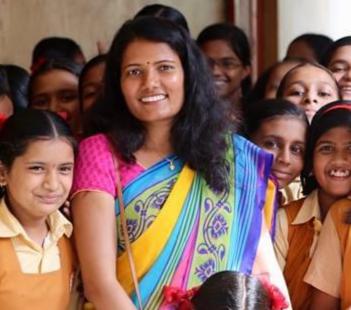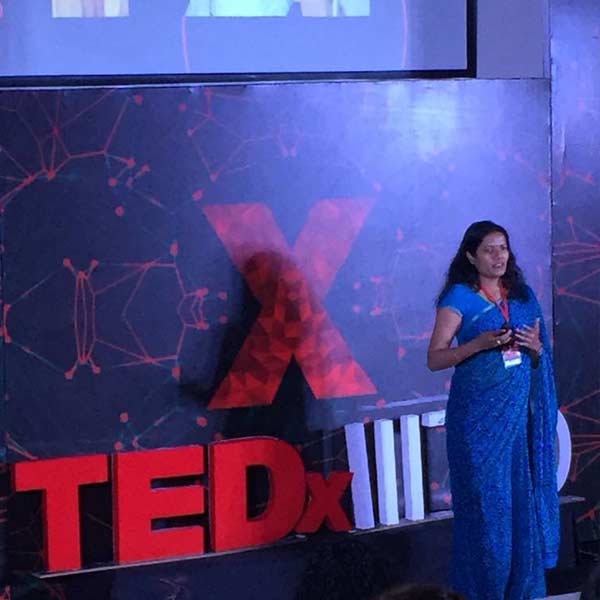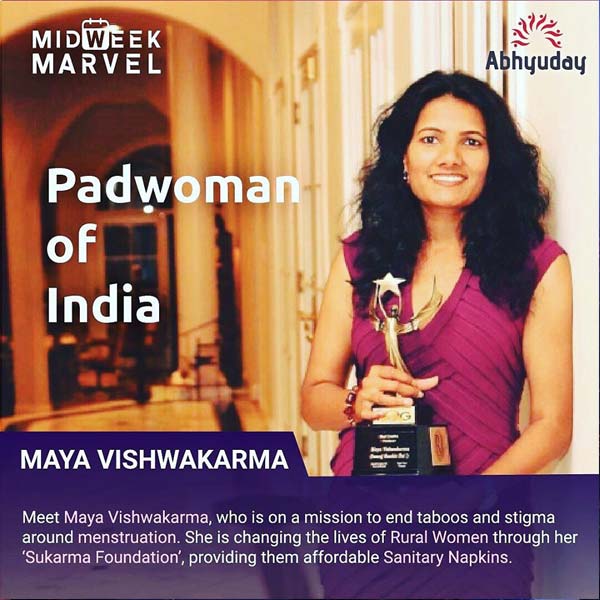Maya Vishwakarma is also known as the “PADWOMAN OF INDIA”.
Founder
- Home
- Founder
Maya Vishwakarma
From the small village of Mehragaon, in district Narsinghpur, Madhya Pradesh (MP), India, Maya Vishwakarma has been contributing to shaping the future of many women, children and families. Breaking barriers and the stigma around menstrual hygiene in the country, she has impacted the lives of more than a million women across the country. After completing high school from her village, she went to Jabalpur RDVV University for her Bachelor’s and Master’s degree in Biochemistry. Her Master’s thesis dissertation work at the All India Institute of Medical Sciences (AIIMS), New Delhi focused on Nuclear Medicine. Later, she finished her Junior Research Fellowship (JRF) in similar areas. When asked why she has been doing it, what’s in it for her? Maya replied, “It makes me move one step closer to my people. Sukarma is my bit to be the change maker and empower the women of this society”. Maya Vishwakarma is a fine example of how taboo and stigma surrounding menstruation affects girls and women in India. She did not hear about sanitary napkins until she was 26. Thus, hers is a classic tale of how a small village girl has put her best foot forward to make it a better world for us.
Maya moved to the United States to pursue her PhD program in Chemical and Biological Engineering from SDSMT (South Dakota School of Mines and Technology). She dropped out from her PhD and moved to the San Francisco Bay Area to pursue her career in Cancer Biology at UCSF hospital.
While working in her home district for the last 5-6 years, she made a documentary on the model village, Baghuvar in Madhya Pradesh, titled “Swaraj Mumkin Hai” (Independence is Possible), and wrote a book by the same name. These projects were aimed at spreading awareness of rural education and sustainable villages, and have been awarded and appreciated at the national and international levels.
Deeply inspired by PADMAN Arunachalam Muruganantham – he is a social entrepreneur who invented a low-cost sanitary pad manufacturing machine and started raising awareness about menstrual hygiene in rural India (https://en.wikipedia.org/wiki/Arunachalam_Muruganantham) – and the remarkable achievements in his home state of Tamil Nadu, she researched a few more startups in India that make affordable sanitary napkins using semi-automatic pad-making machines.
Sukarma Foundation established a mini factory in 2017 to make sanitary napkins in Narsinghpur district under the brand name “No Tension”, providing employment to local women and raising menstruation awareness. The objective of this project is to protect tribal and rural girls/women from infections such as RTIs (Reproductive Tract Infections), UTIs (Urinary Tract Infections) and Cervical Cancer by educating them about menstrual hygiene and providing them with hygienic and low-cost sanitary pads.
Sukarma Foundation has now expanded into rural health camps and Telemedicine centers in areas that do not have sufficient medical personnel.
“More on Sukarma’s Recent Work”
This year, Sukarma Foundation started a medical health camp in Narsinghpur (M.P.) that was attended by the largest number of patients in the year. We performed mammography for 300 women using the iBreastExam machine in remote tribal villages. We also started our first Telemedicine Center in Mehragaon. This center is run by two young bright girls in the village and serves around 20 patients every day.




